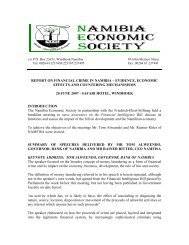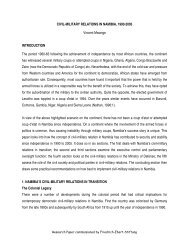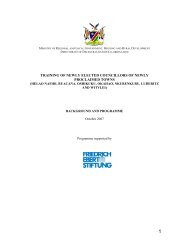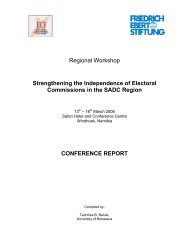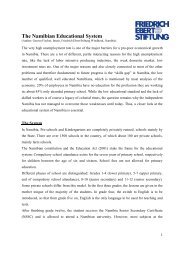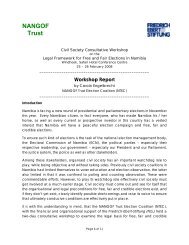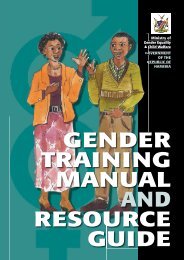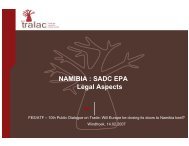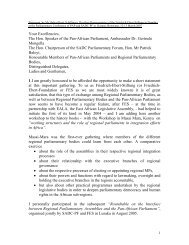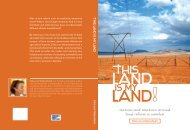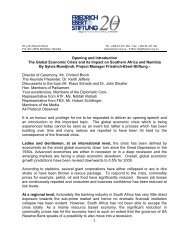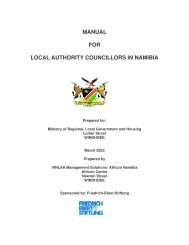Report - Friedrich Ebert Stiftung - Namibia
Report - Friedrich Ebert Stiftung - Namibia
Report - Friedrich Ebert Stiftung - Namibia
You also want an ePaper? Increase the reach of your titles
YUMPU automatically turns print PDFs into web optimized ePapers that Google loves.
Workshop <strong>Report</strong> on Police Labour Relations in <strong>Namibia</strong>: Time for a New Beginning?<br />
Closing Remarks<br />
Summing up the workshop the rapporteur gave a brief outline of the proceedings<br />
of the past two days and read an extract from the conclusion of his discussion<br />
paper.<br />
8:<br />
Closing Ceremony<br />
In his closing address the Hon. Immanuel Ngatjizeko, Member of Parliament of<br />
Labour and Social Welfare, referred to “…this important Consultative Workshop<br />
on Labour Relations relative to the Police, Prisons and Correctional Services in<br />
<strong>Namibia</strong>.” He referred to the Labour Act which expressively excluded those<br />
groups from its scope, except in respect of the prohibitions against<br />
discrimination. Therefore, there is no provision in National Law for collective<br />
bargaining between employers and employees in the services.<br />
He congratulated the NUNW for the approach that it had accepted to place this<br />
topic on the national agenda for discussion and bringing together many of the<br />
stakeholders to begin consultations on what is not a simple subject. He aligned<br />
himself with the opening remarks of the Hon. Minister of Safety and Security that<br />
the uniformed services are excluded from most of the provisions of the Labour<br />
Act because of their unique role in the maintenance of security in the country and<br />
the need for them to operate impartially. Although the existing legal framework<br />
governing the Police-the Police Act and the Regulations-does not permit trade<br />
union activity without the written consent of the Inspector-General, the question<br />
has been opened for discussion whether the law should be changed to provide<br />
affirmative obligations and rights to collective bargaining in the two sectors.<br />
He stressed that the issues concerning labour relations in the Police and Prison<br />
and Correctional Services must be considered within the framework of our<br />
Supreme Law, the <strong>Namibia</strong>n Constitution, Sub-Article 1 of Article 21, which right<br />
is not absolute, as it must be read subject to Sub-Article (2). Therefore, he<br />
Page 19



